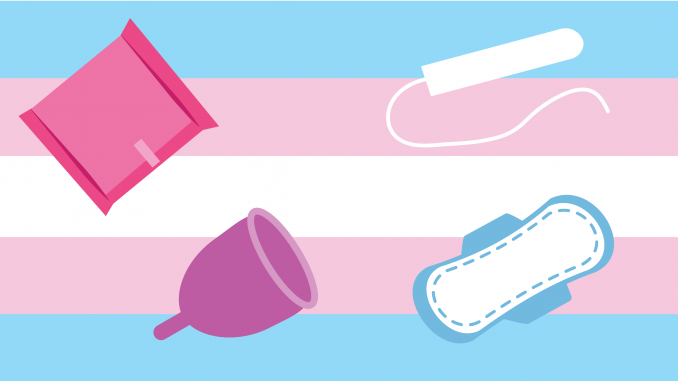

In October, menstrual hygiene product company Always made the decision to remove the female symbol off of their packaging to make it known that their products are gender-inclusive. While many did not take well to this transition, I believe it opens up an equally important conversation — the fact that menstruation is something that people of all genders deal with.
Menstruation affects cisgender women as well as transgender men and nonbinary individuals. For this reason, menstrual products should be free and available in all public restrooms — men’s, women’s and gender-neutral.
Schools like Brown University and the University of Wisconsin-Madison already provide menstrual hygiene products in all bathrooms, the Chronicle of Higher Education reported in May 2017. But this isn’t the case in the vast majority of Temple’s non-female bathrooms, which doesn’t accommodate transgender individuals.
Sanitary napkin receptacles are only available in women’s and gender-neutral bathrooms on campus, said Michael Juhas, director of housekeeping for campus operations. Without these products available in men’s restrooms, transgender men won’t be able to properly dispose of used menstrual products in a safe and sanitary way.
Cisgender women aren’t the only ones who get periods. Plenty of transgender men and gender non-binary individuals also menstruate, and are in need of these products while on campus and places to dispose of them safely.
Gender fluidity has been thriving in multiple cultures, according to PBS, and not everyone subscribes to male-female labels.
“Sex is the combination of external and internal physical markers we use to assign most living beings into categories of ‘male’ and ‘female,’” said Adrienne Shaw, a media studies and production professor with expertise in queer theory. ”Gender is how we express our relationship to the categories of femininity and masculinity and the full spectrum of both.”
Regardless of the chromosomes we were born with, not all of us identify with the sex we were assigned at birth.
It’s time our facilities start accommodating people’s needs, and this includes having menstrual hygiene products available in all on-campus restrooms.
“Using menstrual products isn’t something that applies to all women. Many cis women don’t get periods for various reasons, and many trans women can’t either,” said Jackson Burke, a freshman fine arts major and member of Students for Trans Awareness and Rights.
Both nonbinary individuals and many trans men have the same pressing need to access these products and should be able to live without the anxiety of not having menstrual products while on campus.
“A lot of people forget that trans men do exist and they have periods to worry about just like cis women do,” said Casper Fuentes, a freshman English major and STAR member. “Having these products available in all bathrooms would normalize periods.”
Implementing this solution won’t magically erase the shame or stigma associated with menstruation, but it will make countless people’s lives so much easier. When we think about this monthly reproductive process, we need to expand our awareness of who menstruates and how to support them better.
“Everyone’s bodies and needs are different, and we should accommodate for the needs of everyone, not just cisgender people,” Burke said. “The fight for menstrual products in all bathrooms is a gender neutral fight.”


Be the first to comment